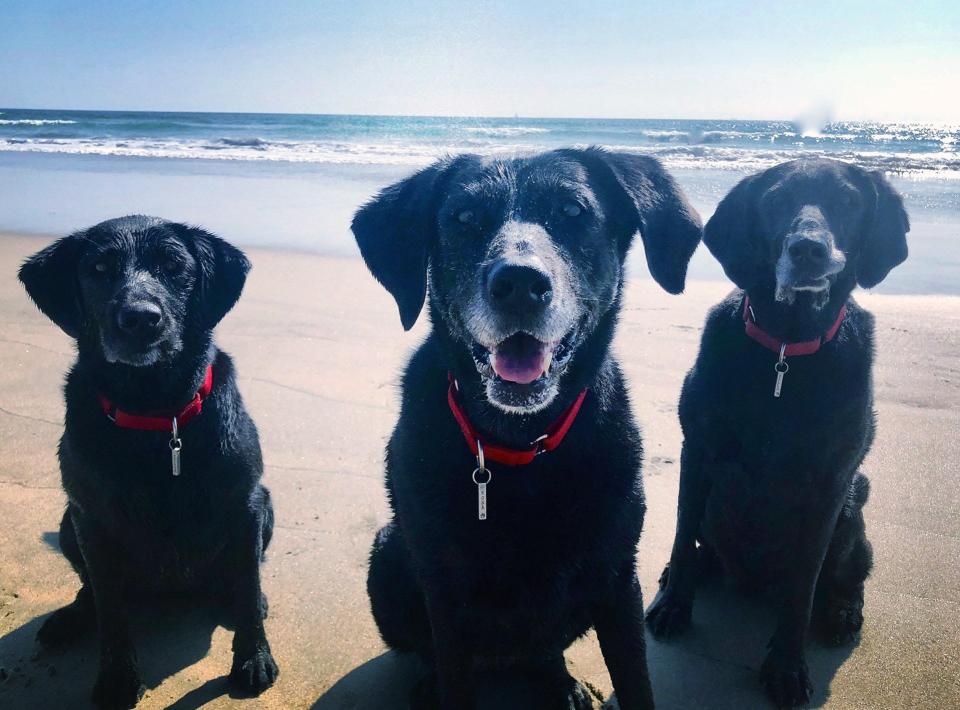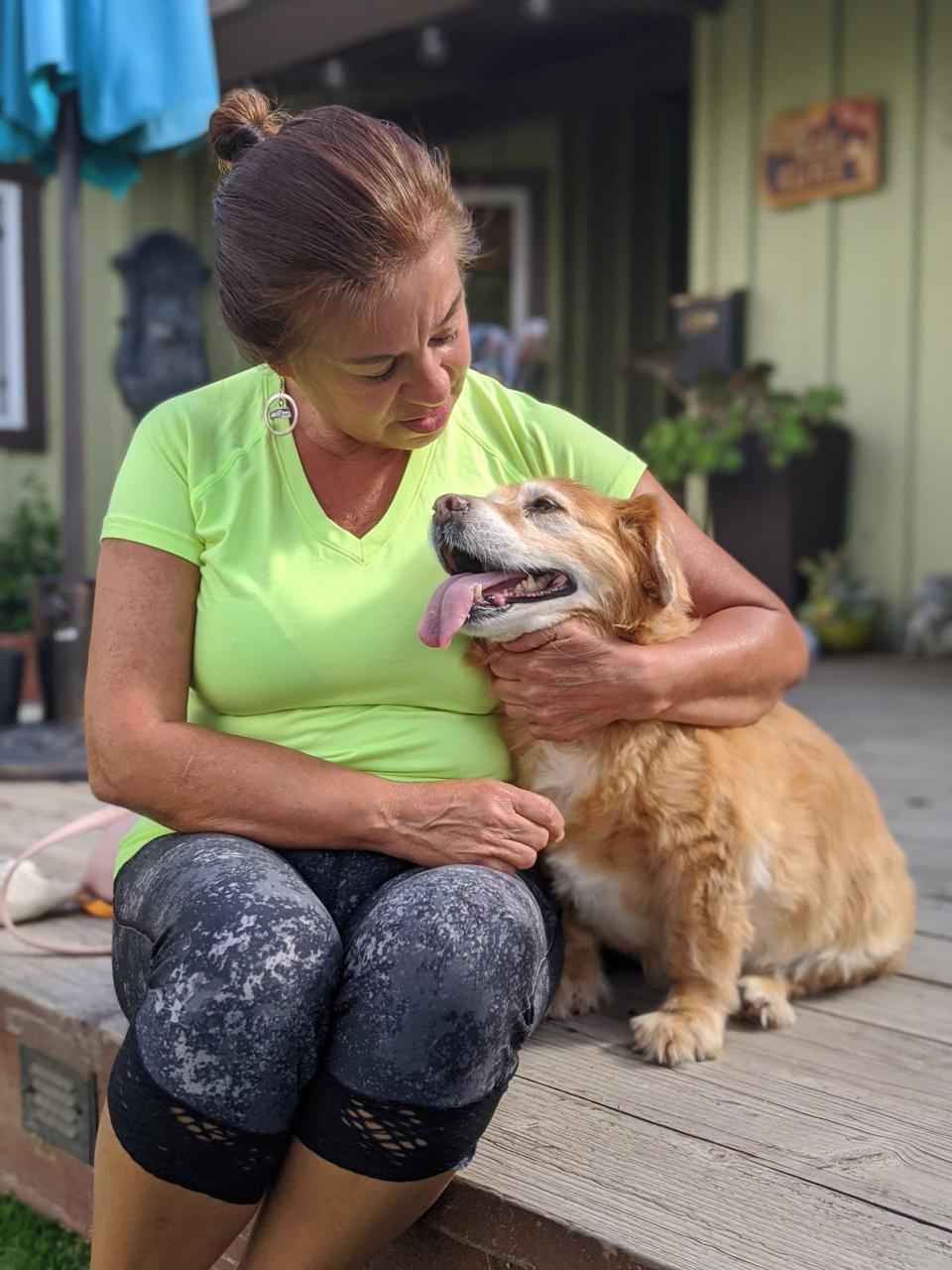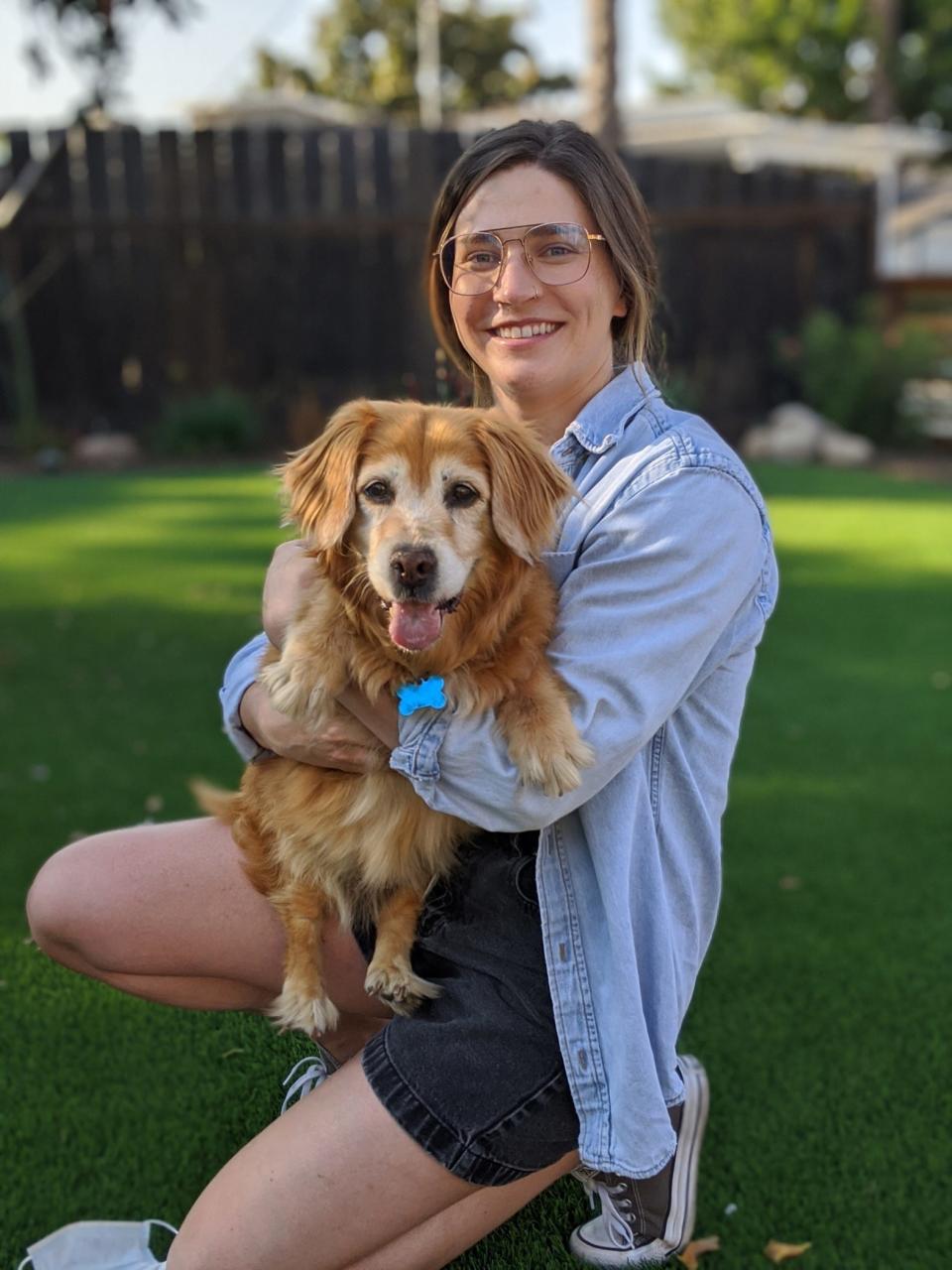'I don't want these dogs to suffer': Pet surrenders becoming tragic part of pandemic
John Crowe still cries when he thinks about his three black dogs.
After suffering financial trouble because of the COVID-19 pandemic, the 58-year-old former construction worker didn’t know what to do with them at first.
Should he take money out of his retirement savings early, making it possible to keep caring for his dogs in rural Northern California? Or should he give them away to ease his economic situation?
"I couldn't find a place to rent that would take dogs," said Crowe, who works in a warehouse making $17 per hour part time after his hours and other work options were reduced this year. "It was horrible."

He finally found a solution this summer. He gave them to a senior dog sanctuary called Lily's Legacy in Petaluma, California, which found them a new owner and new home on the sunny shores of Venice Beach – a happy ending for an otherwise sad situation that soon may get worse for others.
While the pandemic has led to a boom for pet care in general, it also has created an underside for pet owners struggling to pay for pet expenses because of lost jobs and reduced wages.
Financial hardships caused by the pandemic have led to more pet owners giving up or "surrendering" their pets to a shelter or rescue, which is likely to become more frequent with an increase in evictions and a lack of additional stimulus from Congress.
Dog economy: The pandemic created a thriving economy for man's best friend
An update for pet owners: More brands of dog food recalled because they may contain unsafe levels of aflatoxin
An estimated 10 million pets could be displaced in the coming months because of renters at risk of eviction during the pandemic, according to the Humane Society of the United States.
Other pet assistance organizations already have noticed a troubling uptick. For example, The Pet Fund in Sacramento, California, is a nonprofit that provides funding for veterinary care to those who can’t afford it. Before the pandemic, the organization received more than 200 calls and emails per day asking for assistance, said Karen Leslie, the executive director.

“Since the pandemic started, we have had double that amount on a daily basis, and the numbers keep increasing,” Leslie wrote in an email to USA TODAY. “This has previously only happened after natural disasters. The number of requests for help we have received (have) gone up steadily since our inception, but the number of requests for help is now at an all-time high, with no sign of slowing down. The requests are the same – from pet owners out of work or who have had their income reduced who now need help.”
The Humane Society of the United States has established a COVID-19 Relief Fund to help keep pets and owners together and has distributed more than $1 million to animal shelters, pet rescue groups and horse rescue organizations across 48 states.
Older pets are at a higher risk
Senior pets are seen as especially at risk. They require more care and, with reduced incomes, pet owners often then face a gut-wrenching choice: Find a new home for them or take them to a shelter, where they might be euthanized.
Lily’s Legacy, which found the new home for Crowe’s dogs, serves as an alternative to that and hopes to raise awareness of the issue this week during Saving Senior Dogs Week. Instead of being abandoned at shelters, pets that are surrendered to this organization and others like it are likely to get more personal attention and a new home.
'I will be put out of my house': Some Americans who struggled early in crisis are on brink, others find jobs
"I think we're now beginning to see an onslaught of dogs coming in because of the financial hardships of COVID,” said Alice Mayn, executive director of Lily’s Legacy. "Until now, people have been able to hold their own and put off the hard decision. But now as winter comes and they've been out of work for longer… It's horrible, and I think it's really getting to a point now where hard decisions have to be made."
That's what happened to Sara Maicon in San Diego. She had two dogs, including one with diabetes. She lost her job and her home, leading her to seek help from her family and forcing her to cut expenses.
"I can hardly take care of myself. How can I take care of these dogs?" said Maicon, who is still unemployed after losing her job this year at Kaiser Permanente. "I don't want these dogs to suffer, especially being seniors. One of them has medical issues. They told me if I brought them to the shelter they were going to put them down, and I just didn't have the heart to do that."

She ended up giving away her dog Maggie to Lionel’s Legacy, a senior dog sanctuary in San Diego County. Maicon said she later learned the golden retriever mix recently was adopted by a veterinarian.
“How lucky is that?” Maicon said.
Maicon also tried to find a home for her diabetic dog but so far she hasn’t been able to find one in large part because that dog needs insulin and extra care.
"I'm between places right now," Maicon said. "Until I get settled down, get a job and get back on my feet again, it's been rough for all of us."
She's grateful for how it turned out with Maggie, a dog she had cared for since she was about 2 years old and now is about 10. Likewise, Crowe had his dogs since they were pups: two Labradors and a hound dog that he says ranged in age from 7 to 13. He worried they would be separated, but they weren’t. And now he almost can’t believe their fortune.

"They would have curled up and died without each other," Crowe said. "I wish (their new owner) would have adopted me from what I hear. They’re living in Venice Beach and living the life of Riley. They're on the beach running and swimming every day."
Mayn, of Lily's Legacy, said pet owners should know their options aren’t limited to surrendering their pets to shelters. A senior dog sanctuary helps limit the trauma dogs and their owners are facing in the tumult of the pandemic.
"It's a much better solution to find a rescue that can take them and have a much better chance of getting adopted," Mayn said. "The shelters do an amazing job and do the best they can. They’re just overrun and a lot of them are being confined by COVID."
She said Lily's Legacy has found homes for all the senior dogs that were surrendered because of the pandemic, including Crowe's three black dogs.
"I wasn’t sure we were going to be able to pull that one off, but we did," Mayn said.
Follow reporter Brent Schrotenboer @Schrotenboer. E-mail: bschrotenb@usatoday.com
This article originally appeared on USA TODAY: Surrendered pets are another sad part of pandemic, but there is hope


